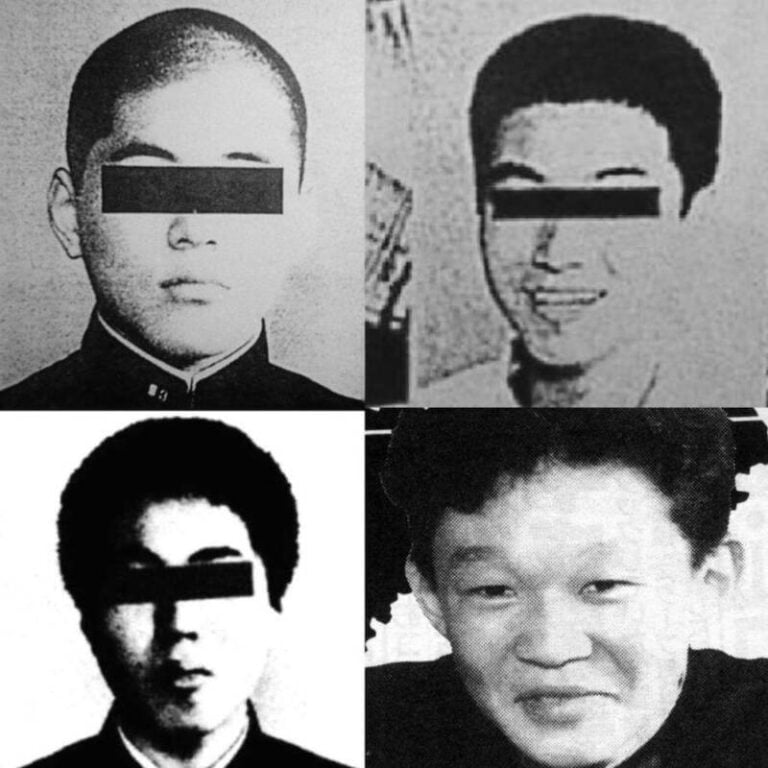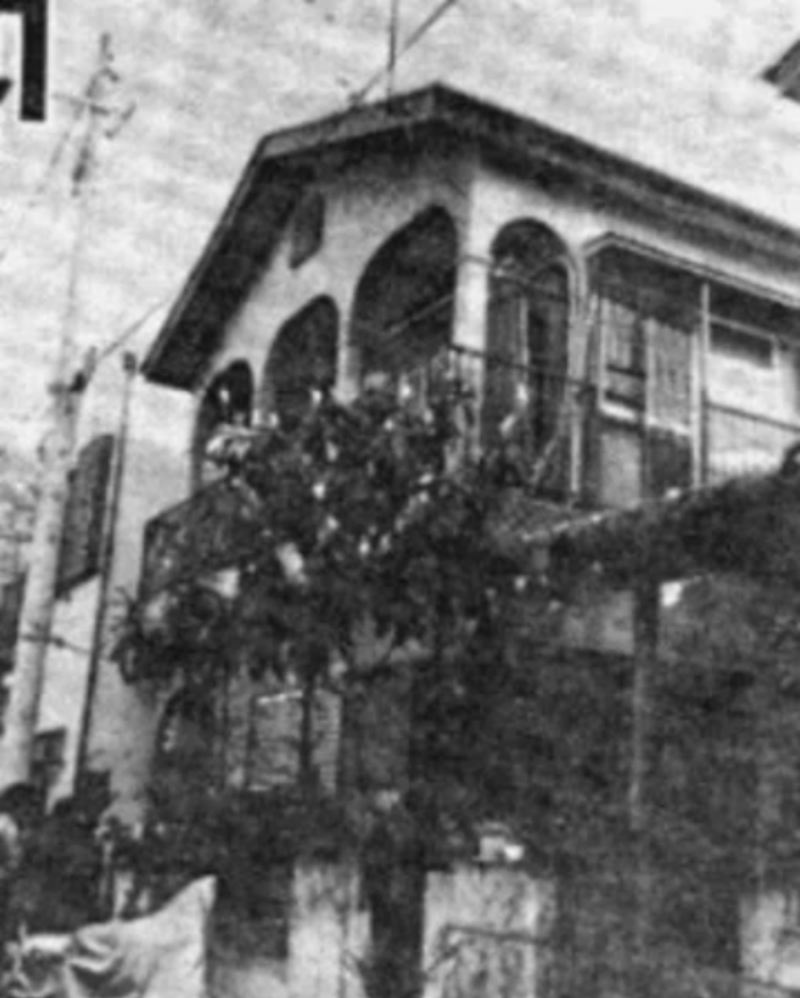Can a crime truly be so horrific that it transcends the boundaries of human understanding? The brutal abduction, torture, and murder of Junko Furuta in 1980s Japan stands as a chilling testament to the darkest corners of the human psyche.
The name Junko Furuta might not be immediately recognizable, but for those who have encountered the details of her case, it evokes a sense of profound horror and disbelief. This is not merely a true crime story; it is a descent into a nightmare, a stark reminder of the fragility of life and the capacity for evil that can exist within individuals and, disturbingly, within a society that may fail to protect its most vulnerable.
Born in Misato, Japan, Junko Furuta was a typical 17-year-old girl. However, her life was tragically cut short when she became the victim of unimaginable cruelty. On November 25, 1988, as she was returning home from school, she was abducted by a group of teenage boys. What followed was a period of unspeakable torment, a harrowing ordeal that lasted for over 40 days and left an indelible mark on Japanese society and beyond.
| Category | Details |
|---|---|
| Full Name | Junko Furuta |
| Date of Birth | Exact date unknown, estimated to be in 1971 |
| Age at Death | 17 |
| Residence | Misato, Japan |
| Known For | Victim of a brutal kidnapping, torture, and murder case that shocked Japan and the world. |
| Education | High School Student |
| Date of Kidnapping | November 25, 1988 |
| Date of Death | January 4, 1989 (estimated) |
| Cause of Death | Multiple injuries, including severe internal damage, burns, and starvation as a result of the prolonged torture. |
| Perpetrators | Four teenage boys: Hiroshi Miyano, Shinji Minato, Yasushi Hirosawa, and Jo Ogura, along with several other individuals. |
| Location of Crime | Ayase district of Adachi, Tokyo, Japan |
| Legal Fallout | Sentences deemed lenient by many, raising questions about the Japanese justice system, particularly regarding juvenile offenders. |
| Cultural Impact | The case sparked international outrage, inspired films, manga, and fueled discussions on bullying, violence, and the treatment of women in society. |
| Reference | Wikipedia: Murder of Junko Furuta |
The events that unfolded after Junko's abduction are almost too horrific to comprehend. She was held captive in an abandoned building in the Ayase district of Adachi, Tokyo. Her captors, led by a ringleader named Hiroshi Miyano, subjected her to unimaginable physical and psychological torture. The details are deeply disturbing: brutal beatings, burns, sexual assault, and starvation were just a few of the horrors Junko endured. Her captors escalated the abuse, treating her as a plaything, stripping her of her basic human dignity, and systematically destroying her will to live.
According to authorities, Junkos internal organs were so severely damaged that her body rejected any food she was forced to consume. The level of cruelty was such that it defied comprehension. The perpetrators, all teenagers at the time, showed a complete lack of empathy and remorse for their actions. Their actions were not impulsive; they were calculated, prolonged, and deliberate, highlighting the chilling capacity for evil.
The case of Junko Furuta is more than just a crime; it is a reflection of societal failures, human cruelty, and the consequences of unchecked power. The silence of neighbors, the apathy of some adults who were aware of the abuse, and the ultimate leniency of the sentences handed down to the perpetrators all contribute to the tragedys enduring impact.
The case garnered significant international attention due to the sheer brutality and inhumanity of the crimes. Books like "The Girl in the Box" by John Glatt offered chilling details of the events, providing a glimpse into the depth of Junko's suffering. The story has been retold in movies and manga, with the objective to give remembrance and generate discussion about the tragedy.
The cultural impact of Junko Furutas story extends far beyond the courtroom and the news headlines. It has sparked crucial conversations about bullying, violence, and the treatment of women and the problems associated with juvenile crime. The Japanese justice system has been called into question, particularly concerning the leniency of the sentences handed to Furutas abusers. The case also raises critical questions about the responsibility of society in protecting its most vulnerable members.
The legal fallout from the Junko Furuta case raised important questions about Japan's justice system. The sentences given to the perpetrators were deemed lenient by many, particularly in light of the severity and duration of the crimes. The case exposed flaws in how the justice system handled juvenile offenders and brought to light the social context that allowed such a brutal crime to occur.
The legal system's response to the crime generated huge controversy. Many people criticized the sentences as being too lenient, especially considering the level of torture. It was a clear indication that there were gaps in the juvenile justice system.
One of the most horrifying aspects of the Junko Furuta case is the fact that it was not a spontaneous act of violence. Rather, it was a carefully planned, sustained, and exceptionally brutal series of atrocities. The kidnappers held her captive in the house owned by one of the kidnappers' parents, in the Ayase district of Adachi, Tokyo, Japan.
The lack of adequate retribution for her abusers led to a public outcry and fuelled a lot of debate. It called into question how the legal system treated juvenile criminals and opened up wider discussions about societal responsibilities in preventing such tragedies.
The case exposed a dark side of Japan that many preferred to ignore. The fact that the perpetrators were teenagers further highlighted the disturbing implications for society. It was a chilling reminder of the vulnerability of individuals when faced with organized violence and the potential for human depravity. This case went on to have a great cultural impact in Japan, sparking conversations about the issues related to violence, and the treatment of women.
The story of Junko Furuta isnt just another crime tale; its a deeply disturbing chapter in the history books. Its a story that has been etched into the memories of many, serving as a grim lesson about the consequences of unchecked cruelty. It also serves as a reminder of the importance of justice and accountability.
Perhaps even more shocking is the question of how the criminal justice system allowed them to escape with such minimal punishment. It will shock you what little retribution was handed out for their brutal slaying of Junko. Decades have passed since the tragic events of 1988, but Junko Furuta is not forgotten. Her story continues to inspire change and provoke discussions about justice and humanity.
The case of Junko Furuta serves as a constant reminder of the importance of justice and accountability. The lack of adequate retribution for her abusers led to a public outcry. The tragedy exposed flaws in the justice system, particularly the handling of juvenile offenders.
Two films have also used the story of Furuta's unspeakable murder, adding another dimension to the narrative's lasting legacy. These films, along with books and manga, have sought to keep her memory alive and serve as warnings against the perils of cruelty and violence.
Most Japanese citizens who are aware of this case know it by (\u5973\u5b50\u9ad8\u751f\u30b3\u30f3\u30af\u30ea\u30fc\u30c8\u8a70\u3081\u6bba\u4eba\u4e8b\u4ef6). The case became a symbol of the vulnerability of the girl as well as the failures of a society. It led to public outrage and debates about juvenile justice and society's role in preventing such heinous crimes.
The responsibility for Junko Furutas death cannot be placed solely on the actions of the four teenage boys involved. There were numerous individuals who failed to notice or intervene in the assault on the girl, ultimately leading to her untimely demise. This emphasizes that the horrific events are not just about individual actions, but about a larger societal context.
Junko Furutas tragic story remains a powerful reminder of the importance of empathy, justice, and awareness. The case is not just a mere criminal event; it is a deeply disturbing tale that has left an indelible mark on society. By learning about her life and the horrific events she endured, we can better understand the darkest aspects of human nature and work towards creating a society that protects its most vulnerable members. The enduring impact of the Junko Furuta case is a constant reminder of the devastating consequences of unchecked cruelty and the urgent need for justice and accountability.


